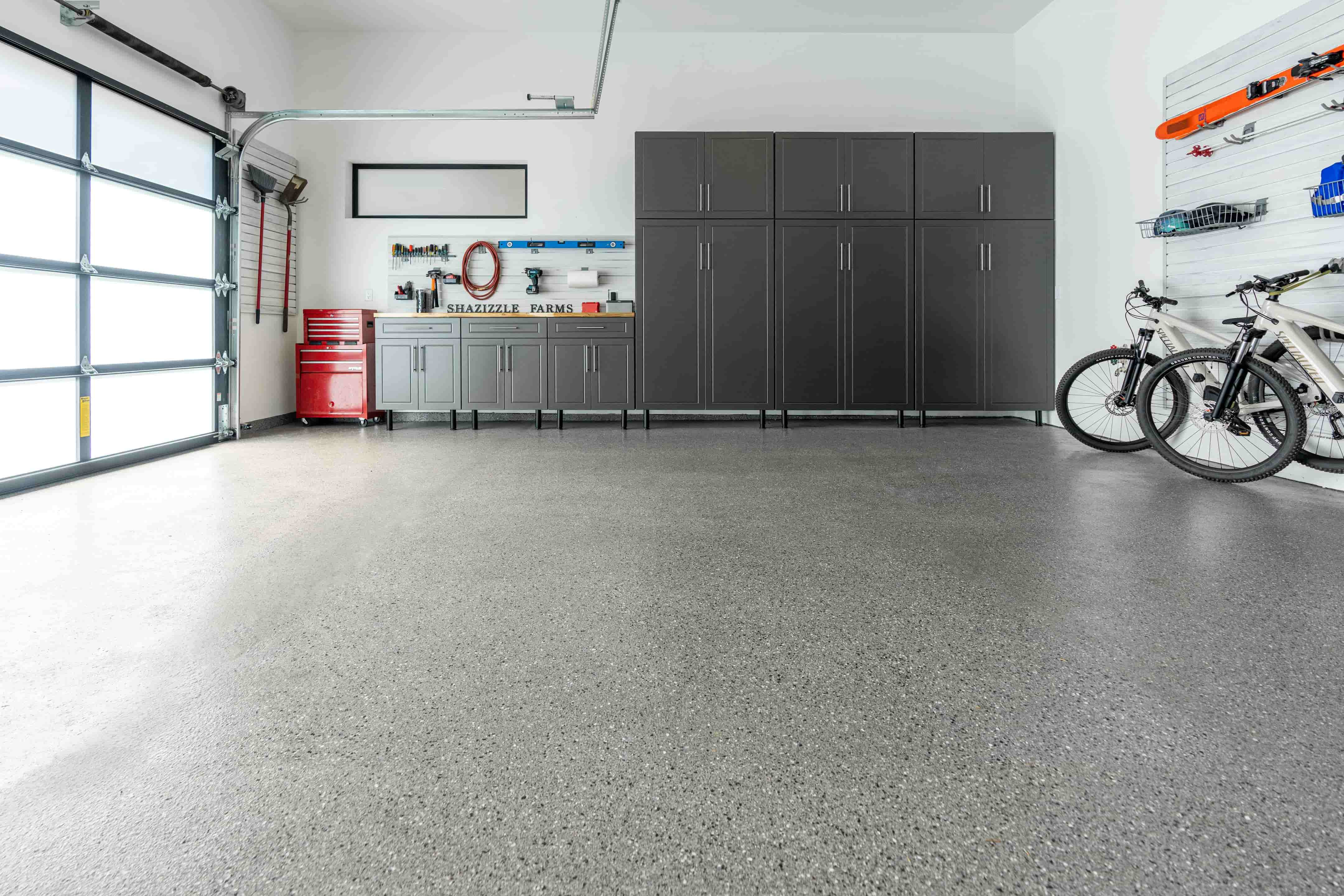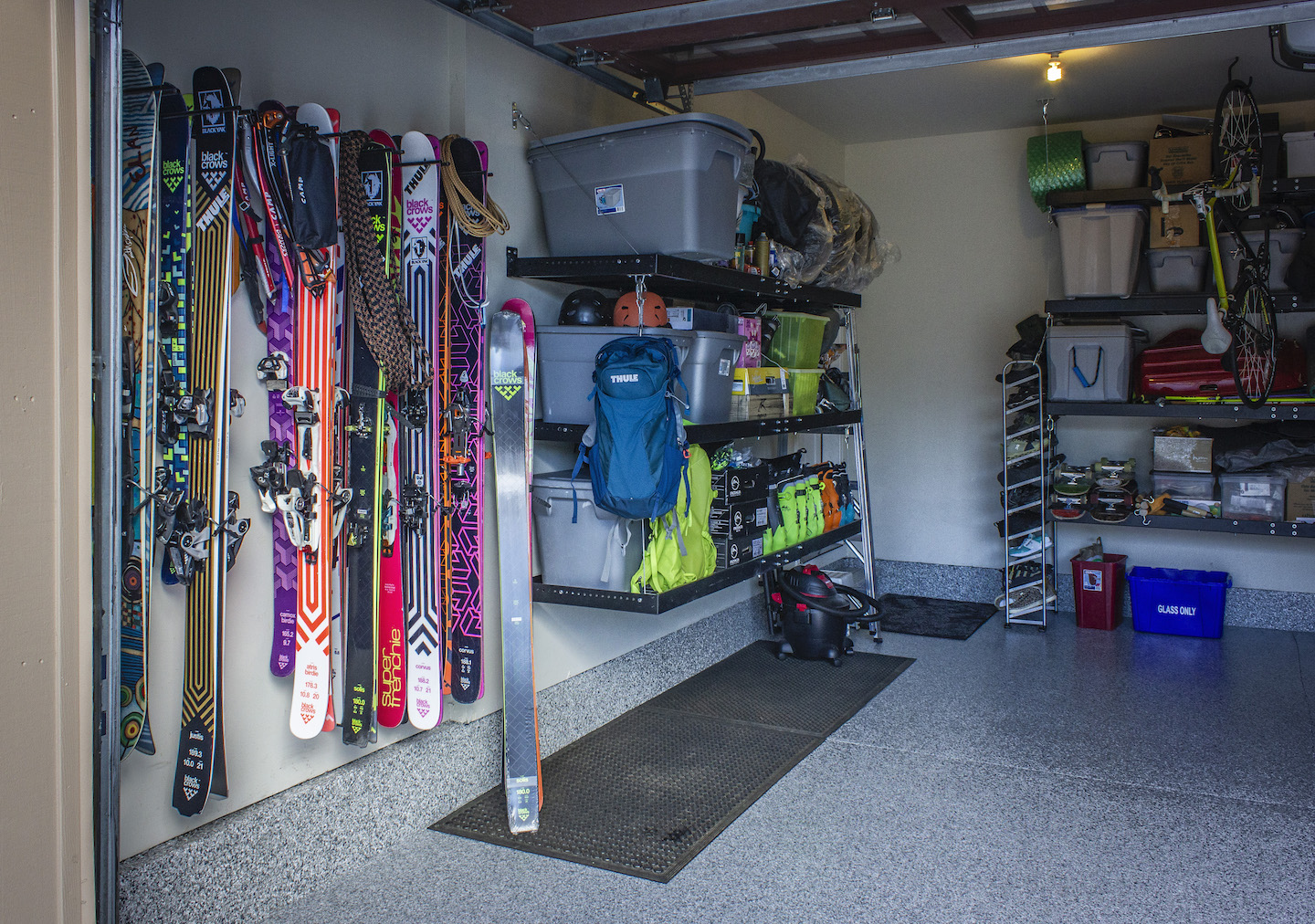
In the winter, keeping your garage protected is a challenge. The weather is cold, wet, and muddy. Depending on the area you live in, there may be snow and road salt. Moisture, mud, and road salt all pose a risk to the condition of your concrete garage floor. Moisture and mud make it it difficult to keep your garage dry, clean, and usable. Webfoot has gathered together everything you need to know to winterize your concrete and your garage so that you can have an accessible, clean, and usable space throughout the winter season. We'll cover:
- How is Your Garage at Risk this Winter?
- Ranking Garage Floor Winter Protection Options from Worst to Best
- Can Webfoot Install Coatings in the Winter?
- 3 Great Reasons to Have Your Garage Floor Coated this Winter
How is Your Garage at Risk this Winter?
Garage floors can withstand mud, dirt, debris, and other foreign objects during the summer and fall seasons, especially with regular maintenance. However, things are different in the winter as your concrete is exposed to low temperatures, snow and moisture, and road salts.
Does Road Salt Damage Your Concrete?
In the winter, road salt is used to thaw ice and snow on roads, driveways, and sidewalks.
Because concrete is naturally porous, it easily absorbs water from melted ice and snow, leading to corrosion beneath the concrete surface. This leads to discolored, cracked, and crumbling concrete.

If concrete is not sealed, it will suffer more from the effects of road salt, and the longer any concrete floor is left unsealed, the faster the road salt damage takes effect.

How Salt Damages Concrete

Contrary to popular belief, it is not the salt that damages the concrete but its effects. So how does this process occur?
When the calcium hydroxide in concrete reacts with the calcium chloride in the salt, calcium oxychloride (CAOXY) is formed— a substance that can severely damage concrete. As CAOXY forms in concrete, its crystals expand, which naturally causes the concrete to crack and crumble inside.
In addition, when road salt lowers the freezing point of water and increases the pressure of frozen water, it increases the effects of freeze-thaw cycles. Keep in mind also that melted ice contains about 10% more water than normal.
It follows: The more frequent the freeze-thaw cycle occurs in concrete due to road salt, the more pressure is exerted on the concrete.
In other words, the more ice melted by road salt and refrozen due to the weather, the more damage is done to the concrete floor.
Ranking Garage Floor Winter Protection Options From Worst to Best
Keeping your garage floor in good condition is a year-round task. The winter months are, however, more challenging, with road salt, snow from winter maintenance, and snow storms causing serious damage. A slippery and wet surface in winter also poses a risk of injury.
So if you want your garage floor to last until spring without the paint peeling, the concrete cracking, or causing serious injury, you need a strong layer between it and the element - something designed to withstand harsh conditions and preserve your concrete garage floor. Let’s examine three popular garage protection options, ranked from worst to best.
Bad Protection Option: DIY Acrylic Sealers
Sealers are easy to apply, but are not the best option to protect your concrete.
Acrylic concrete sealers are water- or solvent-based substances that form a protective film when applied to concrete floors. They are the go-to option for many DIYers because they are relatively easy to get and apply. And even though they provide stain, UV, and mold resistance, these sealers are not the best options. In fact, compared to the others, they may be the worst.
Acrylic sealers are not temperature tolerant (which also implies that they are only suitable for indoor use) and are quite expensive to maintain. Plus, they are difficult to remove, lose their shine over time, particularly in cold weather, and emit strong odors shortly after application. Furthermore, acrylic concrete sealers are not abrasion-resistant.
.png)
Okay Protection Option: Snow mats

Snow mats are an excellent upgrade to DIY acrylic concrete sealers for various reasons. They effectively soak up snow, water, road salts, and any other items that would otherwise seep into the pores of your concrete and endanger the integrity of your garage floor. By effectively containing water, they also ensure that your garage floors are dry and less likely to cause a fall, which earns them five stars for safety.
These mats can also be used to conceal blemishes on your garage floors. So, if your garage floor is looking a little worse for wear and you're not ready to replace or repair it, you can cover it with snow mats. Even if there are no blemishes, throwing a quality snow mat on your garage floor is good for aesthetics.
Finally, snow mats are easy to install, especially since no floor preparation is required. You'll find them simple to use regardless of the season or weather.
Despite their advantages, snow mats have many weaknesses. First, they can get heavy due to their thick material and absorbed moisture, making them difficult to carry or adjust. They are also not the most durable options, and replacement costs often become expensive over time. Finally, garage floor mats are known to give off a bad odor after a while due to absorbed moisture, dirt, and snow.
Best Protection Option: Concrete Coating
High-performance coatings are easy to clean and the best in terms of durability.
In terms of garage floor protection, concrete coatings are the best. They're designed to protect concrete garage floors while also improving the appearance of your garage. The best concrete coatings are slip-resistant, so you won't have to worry about slipping and accidents.

One concrete coating that stands head and shoulders above the rest is Webfoot's concrete coating. Our coatings are the best on the market in terms of curing time, garage floor protection, aesthetics, and safety. They are also highly salt-resistant, protecting concrete floors against the harmful effects of road salt.
Unlike Epoxy, which cures poorly in extremely cold weather, Webfoot’s polyurea coatings can be installed all year round and are available in various formulas to meet a wide range of needs.
Remember that most concrete coatings' performance often depends on how they are installed. Therefore, for optimal performance, it is best to have a concrete coating installed by a professional.

Coatings Protect Your Garage Floor Through Winter & Beyond
Having reviewed the possible options for covering your garage floors, it is clear that concrete coatings take the top position.
Can Webfoot Install Coatings in the Winter?
Yes! Webfoot Installs Concrete Coatings Year-Round.
If you have ever wondered if it's possible to install garage floor coatings during the winter, the answer is absolutely! Most people believe it's impossible to successfully apply a coating during the winter due to the cold, but that couldn’t be further from the truth.
It can be difficult, yes (which is why professionals better do it), but definitely not impossible. At Webfoot, you’d find us installing garage concrete coatings all year round! The only thing, though, is that if your exterior surfaces are exposed to snowfall, we cannot coat them.
If you've been thinking about the best options for your garage floor coatings in the winter, you’ve probably thought about using epoxy coats— a popular and affordable type of floor coating.
The problem with epoxy, however, is that you cannot install it at any temperature. Unless the epoxy coating is specifically formulated for cold weather, it usually doesn’t cure completely when applied at temperatures below 40 degrees.
But If you must use them anyway, you'll have to do a few tedious things like warming up your environment before applying the first and second coats.
What you want, then, is a coating that will not give you any problems despite the weather, and polyurea coatings are the best choice for that. They can be installed at any temperature, even zero degrees and below, which makes them ideal for coating garage floors in winter.
Also, regardless of the temperature, polyurea forms a strong chemical bond with the concrete it's applied to, which means it will not chip, peel, or crack. What makes it even better is that at Webfoot, we slightly adjust the mix of our polyurea coatings so that they cure perfectly even in freezing temperatures.
3 Great Reasons to Have Your Garage Floor Coated This Winter
You may have put off coating your garage floor until now, and that's okay. There are several reasons now is the perfect time to have your garage floor coated, even though it’s winter. Let’s examine three of them.
Reason 1: Protect your floor from road salt.

When you are out and about in the winter, there's a chance that your car tires will bring some road salt into your garage. This wouldn’t be a problem if the road salt were not harmful to your concrete.
But unfortunately, when salts come in contact with your garage's concrete, the concrete’s pore structure absorbs more water, leading to increased pressure inside the concrete when it freezes in cold weather. It does not take long after this before your concrete begins to chip or even spall completely.
Also, road salt and snow can cause white stains—which are difficult to remove— on your garage floor due to subfluorescence, making it look messy and ugly.
On the other hand, a durable, weather-resistant coating like Webfoot’s pure polyurea will save you the damage and stress by acting as a protector for your concrete floor. All you have to do is sweep up the salts to keep your space looking clean and tidy. No pressure.
Reason Two: Expand your living space now – for forever.

Converting a garage into a livable space is no easy feat. There's so much to do, especially on the floor. However, with a garage floor coating, you can quickly transform rough floors into smooth, livable surfaces while adding custom designs to create a homey effect.
Reason Three: Same quality, different season.

The fact that you are installing your garage floor coating in the winter does not mean you have to settle for a lower-quality floor than the one installed in the summer. Regardless of the season and temperature, a Webfoot concrete coating possesses fantastic benefits, including;
- Durable: They’re nothing like epoxy, which breaks after some time. Freely pick up your tools when they fall on our floor coating without fear of floor damage.
- Chemical Bond: They strongly bond to your concrete floor and stay in place year after year—no chips, cracks, or peels.
- 1-Day Installation: There’s no need to wait for days before stepping into your space. Polyurea can be fully applied and cured in 24 hours!
- Temperature Tolerant: Whether installed indoors or outdoors, you won't have to worry about the effect of harsh weather. Say hello to long-lasting garage floor coatings!
A Webfoot concrete coating installed in the winter gives you the same goodness as a Webfoot coating installed in the summer— the best quality for a lifetime.
Book A Free Quote Today & Winterize Your Garage This Year
Schedule a Free Quote
Webfoot makes achieving your project goals easy.
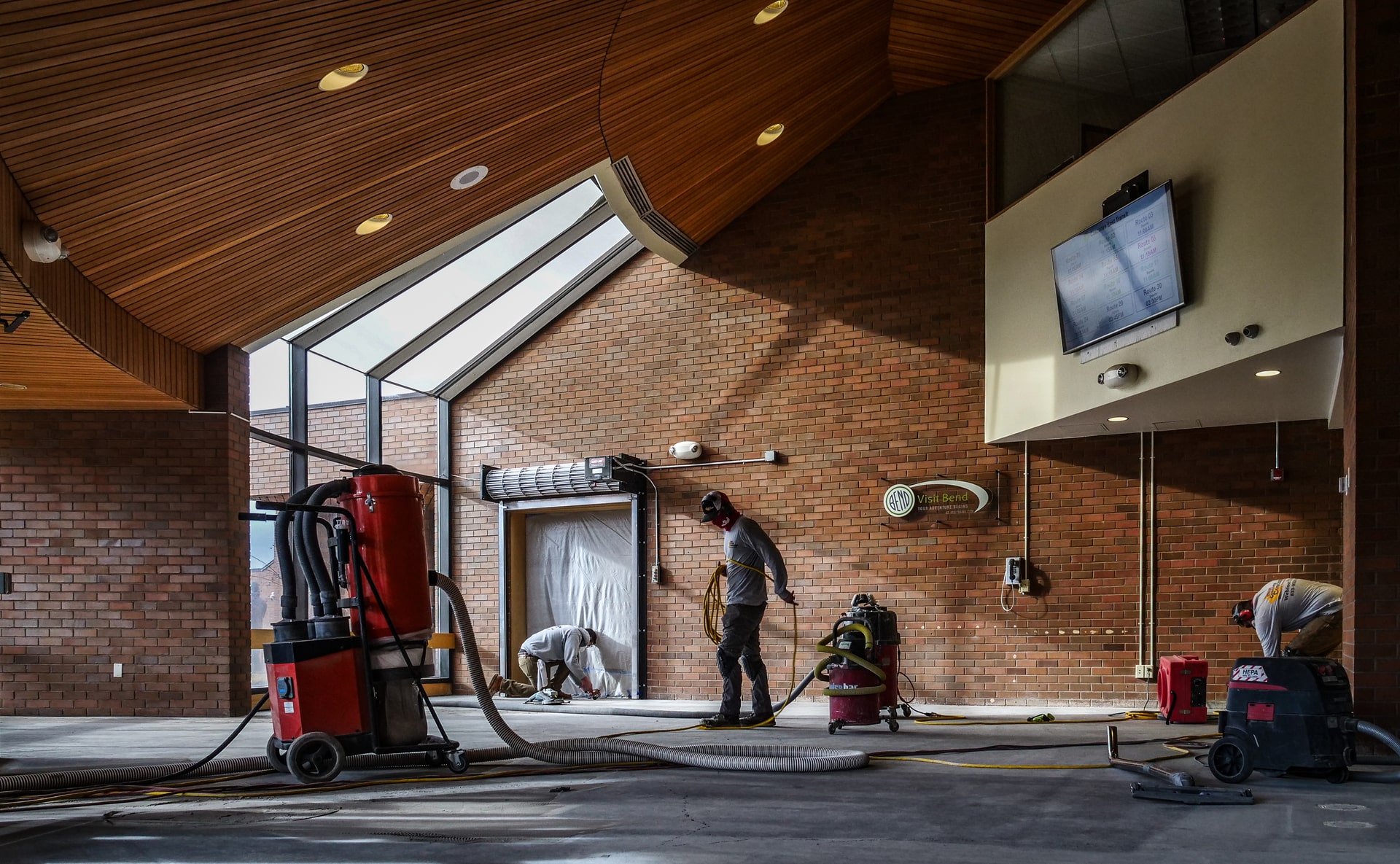
Durable Powder-Coated Garage Cabinets
Learn about Webfoot Cabinets today
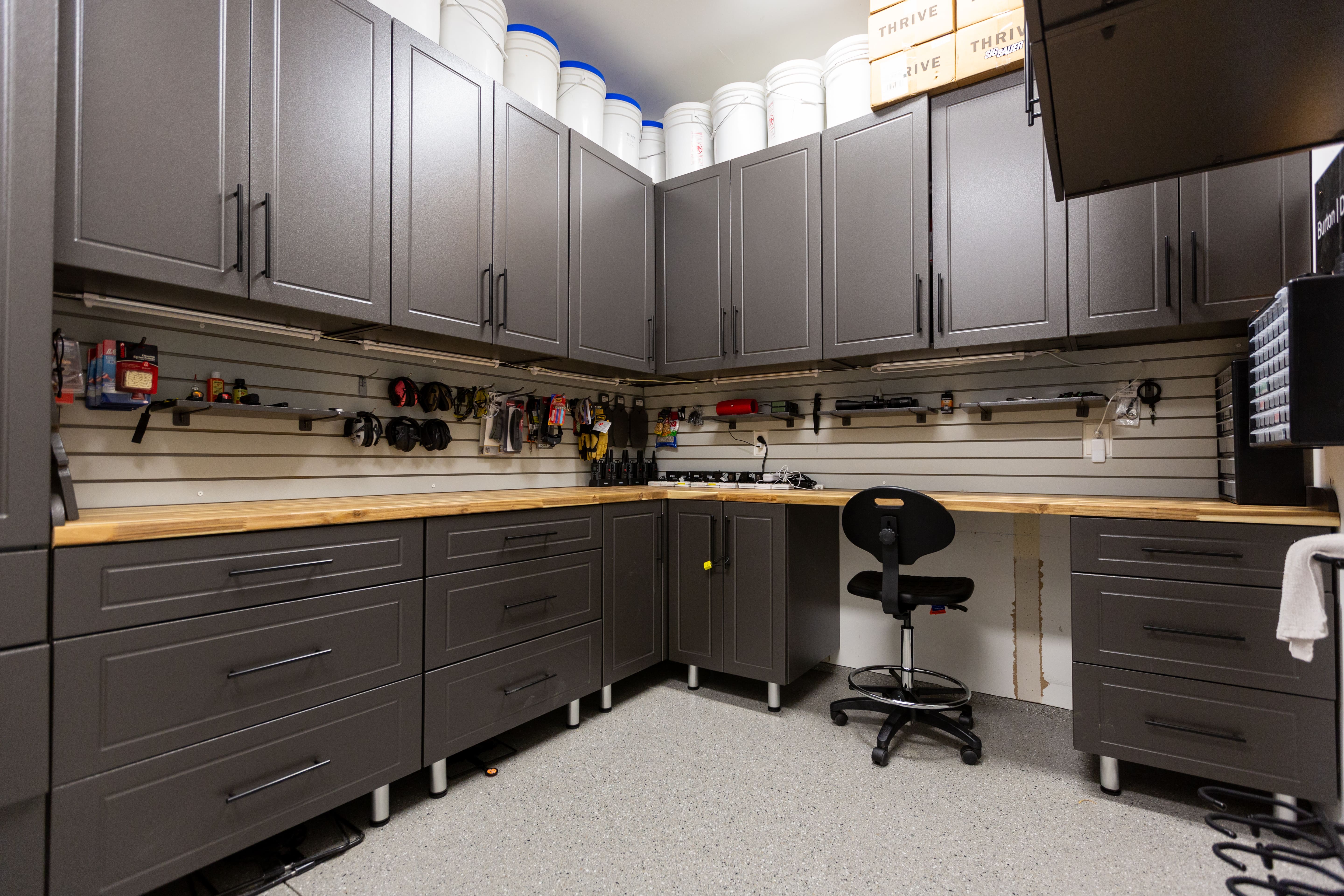
More from our Blog
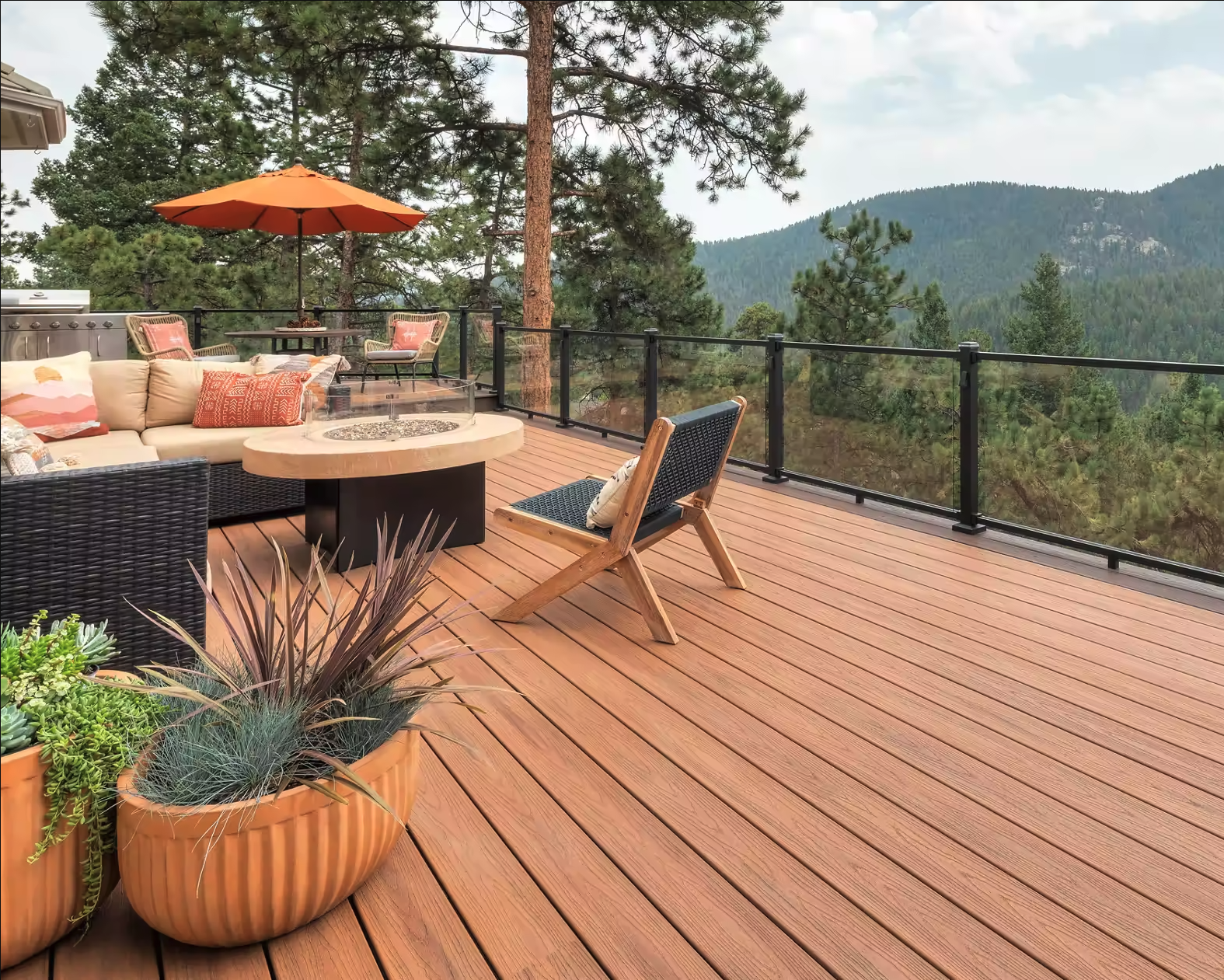
Why We Love Trex Composite Decking

2024 Central Oregon Interior Color Trends

3 Great Reasons to Have Your Garage Floor Coated this Winter

Easy Solutions to Empty Your Garage for a Floor Coating Upgrade

How Garage Storage Can Maximize Your Space this Winter
